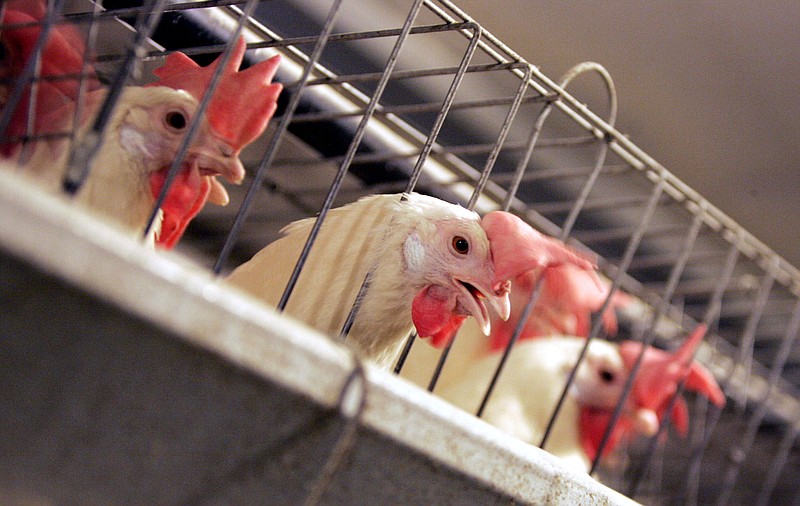Even though the prospect of a chicken processing plant coming to Dade County, Georgia, put the wheels in motion, residents do not want to see setback rules put on the books as part of the county's new heavy industrial use ordinance.
Dozens of people who were against adding agriculture provisions and regulations under the new ordinance convinced county commissioners to completely remove that section of the new draft ordinance.
The provision, among other things, would have prohibited any poultry operation - whether it be for housing, raising, producing, processing or selling - within 500 feet from all property boundary lines or streams in the county.
Commissioner Phillip Hartline took issue with the rule, saying it was attacking small-scale agricultural production while not addressing the issue of heavy industrial use.
Jeremy Dyer, owner of Dyer Livestock on Lookout Mountain, was part of the five-person committee that put together the ordinance. He said at Thursday's public hearing that the committee did not want a setback rule. The rule came later in the process when some of the commissioners and county attorney Robin Rogers were reviewing data from the University of Georgia and figured the setback would fit the needs of Dade County to protect itself from heavy industry moving in.
Dyer, along with David Young, another committee member and land surveyor, both said the setback was not needed.
Most of the people at Thursday's meeting commended Hartline for first bringing up the issue to other commissioners in early January.
"The purpose of this ordinance is industry, not chicken houses," Hartline said at the time.
Hartline said he believed the ordinance as written went too far and would infringe on people's property rights. The reason the commission is putting a heavy industrial use ordinance on the books in the first place is to keep unwanted industries out of Dade County and to give the county rules and procedures that people have to follow.
The 500-foot setback for a chicken house is an agricultural issue, Hartline said, not an industrial one.
The commissioners listened to people's concerns for more than an hour and realized that it was the consensus among the public - especially those who worked in agriculture - to completely remove any mention of agriculture regulations or zoning stipulations.
County commissioners went back and forth for nearly two hours at a Jan. 7 work session.
Several Dade County residents spoke out against zoning ordinances at an October meeting, saying they infringe on their property rights and would put restrictions on what they can do on their own land.
Others were in favor of some sort of zoning, but finding that middle ground has been the key to the commission and community's next steps.
The draft ordinance would require applicants who want to develop or substantially expand a number of industrial sites, businesses, plants, warehouses and other facilities to obtain a special-use permit.
In the draft, the commission wrote that while industry could have positive economic benefits for the county, development has the "potential to have substantial negative impacts to the community, public road and utility infrastructure, environment [and] property values."
The commission is scheduled to vote on the ordinance at its Thursday meeting.
Contact Patrick Filbin at pfilbin@timesfreepress.com or 423-757-6476. Follow him on Twitter @PatrickFilbin.
